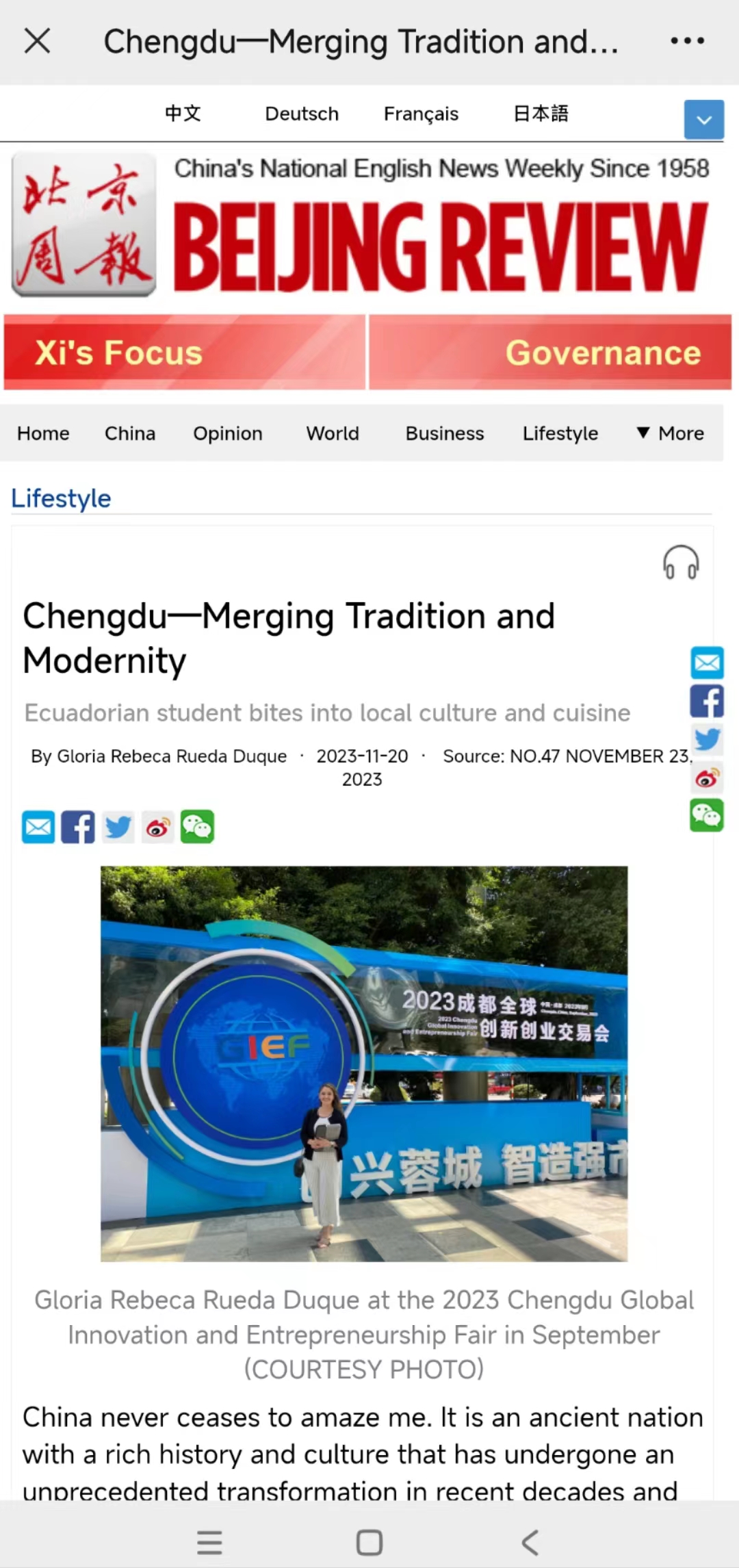
——本文刊载于北京周刊“外国人看中国”栏目
链接:https://www.bjreview.com/Lifestyle/202311/t20231120_800349332.html
Chengdu—Merging Tradition and Modernity
China never ceases to amaze me. It is an ancient nation with a rich history and culture that has undergone an unprecedented transformation in recent decades and boasts a cuisine so varied that you can enjoy a different dish every day of the year.
In September 2022, I started my master's studies at the University of Electronic Science and Technology of China (UESTC), also known as the cradle of China's electronic technology industry. At this academic institution, I focus on digital governance, a crucial field today that merges public administration with cutting-edge technology.
My decision to study at the UESTC has provided me with a unique opportunity to explore how technological innovations can transform public administration and improve the efficiency of government services. This experience represents not only an exciting intellectual challenge, but also an opportunity to contribute to the development of more effective and forward-looking governance for Ecuador, my home country, using digital technologies as an integral part of modernization strategies for the government to create public value.
It has also offered me an opportunity to venture into Chengdu, Sichuan Province, regarded by many as one of the happiest cities in China, as well as the home of pandas. A food capital of the world, it became the first Asian city to be certified as a UNESCO City of Gastronomy in 2010.
Chengdu is a place where time seems to blur the boundaries between past and future. Its ancient temples, traditional alleys and historic architecture open a window into ancient China, taking you into a world of past splendor. But what is really surprising is its focus on the future. Transforming into an epicenter of technology, innovation and development, this city has ambitious plans to become a science city in southwest China.
And, as indicated earlier on, this city is not only rich in history and modernity, but also in flavor. Its Sichuan cuisine is a culinary journey that cannot be matched. This province is known for its spicy food, with bold flavors, fresh ingredients and centuries-old gastronomic traditions coming together to offer dining experiences that delight all the senses.
Sichuan's most popular foods, such as tongue-numbing mapo tofu, pork lungs in chili sauce and hotpot, are a feast for the palate. Hotpot is a dish whereby a heat source placed on the dining table keeps a pot of soup stock simmering, and a variety of Chinese foodstuffs and ingredients are served beside the pot for the diners to put into the hot stock.
Chinese food, in general, is often imbued with cultural significance and symbolism. On special occasions, dishes representing prosperity, longevity and good fortune are served. For example, on my birthday, I received a bowl of noodles symbolizing long life and prosperity, underscoring how food in China goes beyond satisfying hunger and becomes an experience that permeates culture and tradition.
All this richness that Chengdu has to offer led to its selection as the host city for the 31st World University Games from July 28 to August 8. The athletic event was an opportunity not only to showcase Chengdu's sporting spirit, world-class infrastructure, hospitality and organizational expertise, but also to promote friendship and cross-cultural understanding. The event highlighted Chengdu's versatility and openness as a host city, confirming its position as a major international event center and an attractive destination for visitors from around the world.